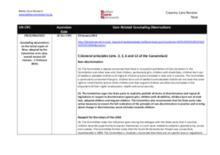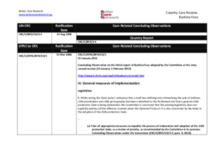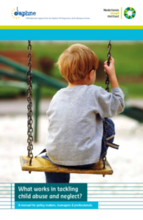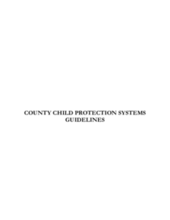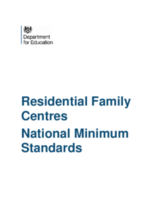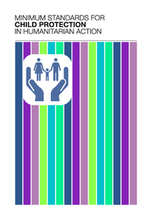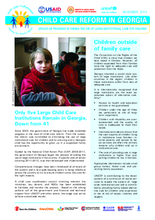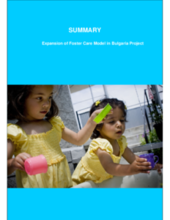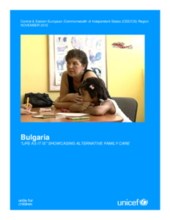Displaying 191 - 200 of 372
This country care review includes the care related Concluding Observations adopted by the Committee on the Rights of the Child as part of its examination during the sixty-second session (14 January- 1 February 2013) of Niue’s initial report to the Convention on the Rights of the Child, as well as other care-related concluding observations, ratification dates, and links to the Universal Periodic Review and Hague Intercountry Adoption Country Profile.
Care related Concluding Observations adopted by the Committee on the Rights of the Child on the initial report of Burkina Faso under the Optional Protocol to the Convention on the Rights of the Child on the sale of children, child prostitution and child pornography.
This manual is the main outcome of the European Commission Daphne III programme, Prevent and Combat Child Abuse: What works? Involving regional exchanges and research from five countries (Germany, Hungary, Portugal, Sweden and the Netherlands), this manual brings together knowledge on what works in tackling child abuse. The manual suggests evidence and practice-based prevention and response strategies against child abuse and neglect, including programs and services that have been shown to be successful in strengthening family care.
The Child Protection System Guidelines were developed to address the fragmented response to child protection in Kenya and guide actors at the county level to deliver more coordinated and professional services for children and their families.
This document contains the UK National Minimum Standards (NMS) applicable to residential family centres.
In its Annual report (2011-2012), the Indian Ministry of Women and Child Development reports on progress in the implementation of the Integrated Child Protection Scheme (ICPS), a new policy and programmatic strategy that specifically articulates the need to move away in approach and services from over-reliance on institutional care and towards responses that support family based care.
The Minimum Standards for Child Protection in Humanitarian Action were formulated in 2011-2012 by the Child Protection Working Group (CPWG), an inter-agency working group composed of child protection practitioners, academics, and policy makers working to support child protection work in humanitarian settings.
The document highlights the recent child care reform in Georgia under the partnership of the Ministry of Labor, Health, and Social Affairs of Georgia and UNICEF and provides an update on progress of ending the use of large institutions care for children.
This summary report describes the project UNICEF has undertaken with the government of Bulgaria to establish a nationwide regional approach to foster care development based on its pilot experience. The project included a national public awareness campaign, establishment of specialized foster care services, and capacity building of the statutory child protection bodies.
This report gives an overview of the documentary reality TV series, “Life as it is-foster families,” which UNICEF in Bulgaria launched in 2010 as a part of its agenda to stop children under 3 years of age from being placed in institutions and to close the infant homes for institutional care.

